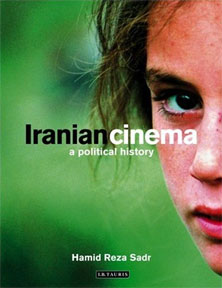
Pussy
The present enmity between Iran and Israel is like the game of cat-and-mouse
February 13, 2007
iranian.com
I knew it! You saw the title of this piece – pussy – and rushed to see if there is anything in it for you. The object of this essay, however, is to say a few words about the state of enmity that exists between Iran and Israel. What does “pussy” have to do with it? Nothing. But here is my two cents about the origin of the word pussy – as in “pussycat.” It is from the Persian pishy, from pish, meaning “near, forth.”
The Oxford English Dictionary (get it? dick-tionary) says that the word “puss” is a common word for cat in the Teutonic languages, with origin unknown, perhaps from a call to attract the cat. Like what? Like, pish-bia (come here), the antonym of pass-boro, (go away, pisht!).
The word pish, of course, means “near” and pishy would have meant “to come close, draw near.” However, anyone who has had a cat knows that this is not exactly the way to attract a pussy, by calling it over just so.
If you have been following these “Persians in English” essays, you would know by now that when the Oxford stops at German or says “origin unknown,” it is time for the Eye-ranian to step in and claim the origin of the word from a familiar sounding Persian (Parsi) or Fersian (Farsi) equivalent.
While I am still on this -- for Christ’s sake, I beg of you to stop referring to Parsagad (=Parsa + gad = Perse + polis=Pars+city) with the nonsense name of “Pasargad.” What the puck is Pasar?
Back to pussy. The fact that pishy has a “p” means that Arabic steered clear of it. Otherwise, pishy would have become “fishy” – although, hmmm – never mind.
The Farsi word for cat is gorbeh, which also is Persian because it has the non-Arabic sound of “g.”
The game of cat-and-mouse is moush-o-gorbeh. The word mouse in English comes from the Indo-German “mus,” beyond which Oxford says no more. So, all together class, the English word “mouse” from the Indo-German “mus” and it comes from the Persian moush!
The present enmity between Iran and Israel is like the game of cat-and-mouse, in which, incidentally, the Persian language supplies the root for the English name of the animals involved in the dance. How about that!
 You do not have to be a devote of Zakani and his Mosuh-o-Gorgbeh epic or an aficionado of the Saturday morning cartoons like Tom-and-Jerry to realize that while locked into a strategic adversity both cat and mouse need one another. The moment that either decides to do away with the other the story turns into one ugly existential mess. You do not have to be a devote of Zakani and his Mosuh-o-Gorgbeh epic or an aficionado of the Saturday morning cartoons like Tom-and-Jerry to realize that while locked into a strategic adversity both cat and mouse need one another. The moment that either decides to do away with the other the story turns into one ugly existential mess.
Up until the election of Mighty Mouse “Motor-mouth” Ahmadinejad, Iran and Israel saw their relations as one dictated by the strategic necessity of the geoplitics of the Middle East. This goes back to the days of the Shah: Iran and Israel maintained relations and friendship as a way to counter-balance the Arab enmity for both. In the Iran-Iraq War when Iraq gained the upper hand in the battlefield, Israel saw the rising Iraqi fortune as a threat to it and so began to supply Iran with weapons. The world knows this as the Iran-Contra Affair, but the significance of the transaction lay in showing once again that strategic necessity knows no shame. That is the same logic that has Hamas, a Sunni Arab organization, in bed with the Shiite non-Arab Iran.
As long as the players in this drama stick to strategic one-upmanship, things need not get out of hand. It becomes a far more dangerous game when the parties begin to look at the adversity between them in existential terms. The Israeli talk of attacking Iranian nuclear installations and regime change is perceived in Iran, rightly, as an existential threat to the government and the country. The Iranian talk about illegitimacy of the state of Israel and its very raison d’etre as a consequence of the Holocaust, too, makes Iran into an existential threat to Israel.
The fact is that the majority of Iranians and Israelis do not see themselves as the mortal enemy of the other. But Iran’s support of Hamas and Hezbollah makes it very difficult for the Israeli public opinion not to consider Iran as an existential threat. The day Israel or the US attack Iran, the Iranian relation with Israel and the US -- and possibly world Jewry – will become one of an irreconcilable existential combat to the death.
We all owe it to the generations to come to defuse this nonsensical escalation from strategic game of cat-and-mouse to an existential struggle that is about to turn adversaries into nihilists. Last thing either US or Israel want in the Middle East and Persian Gulf is an angry nation of 70 million people gunning for them. Comment
About
Guive Mirfendereski is a professorial lecturer in international relations and law and is the principal artisan at trapworks.com. Born in Tehran in 1952, he is a graduate of Georgetown University's College of Arts and Sciences (BA), Tufts University's Fletcher School (PhD, MALD, MA) and Boston College Law School (JD). He is the author of A Diplomatic History of the Caspian Sea >>> Features in iranian.com
|